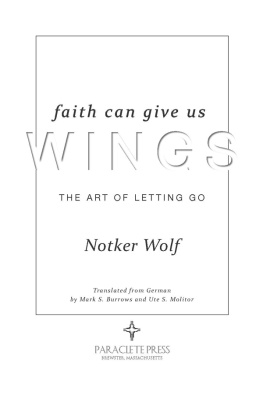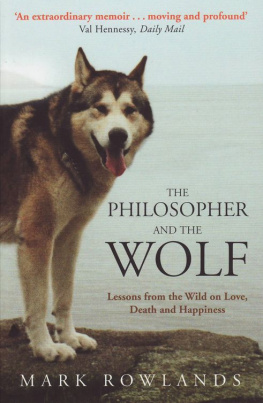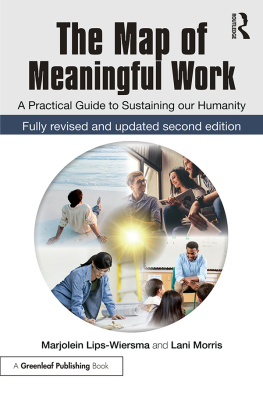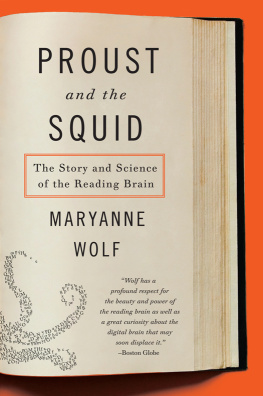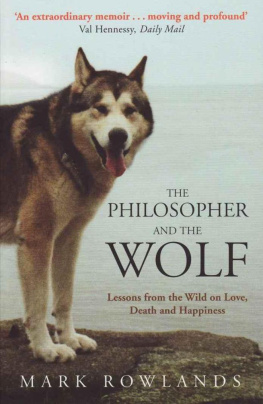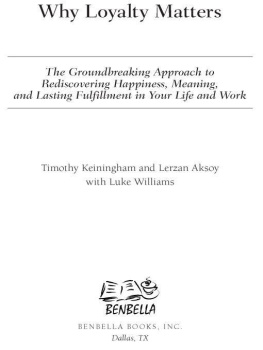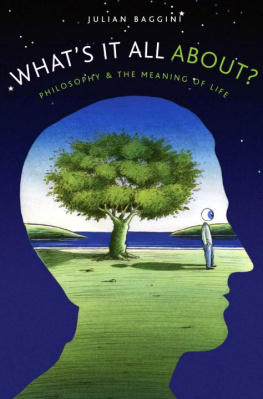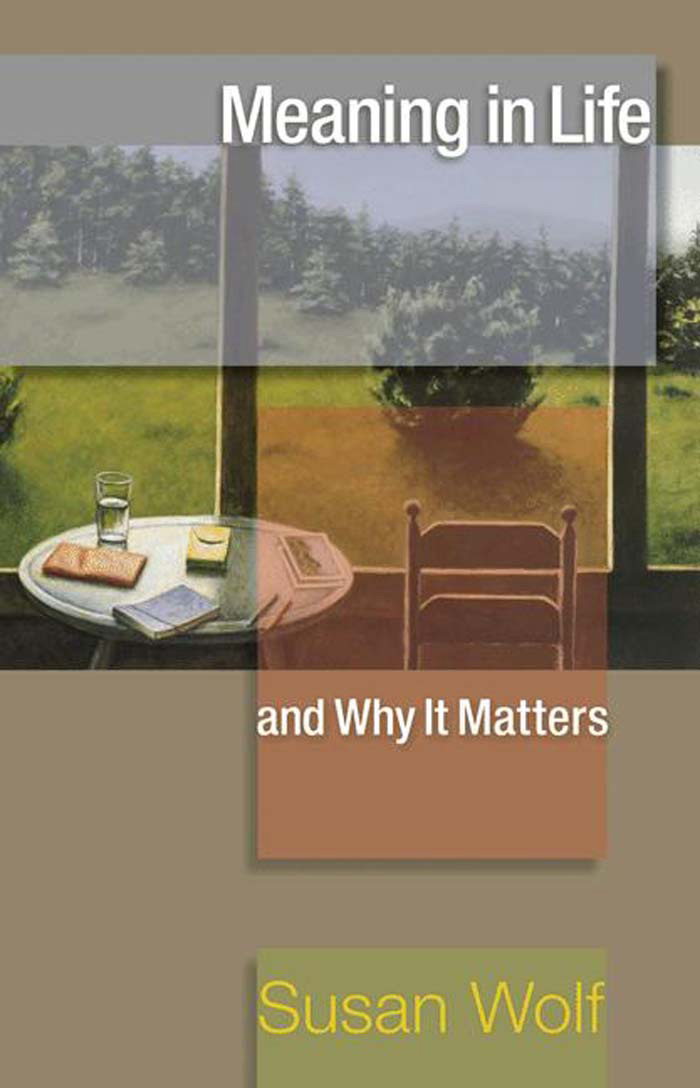
The University Center
for Human Values Series
Stephen Macedo, Editor
Multiculturalism and The Politics of Recognition
by Charles Taylor
A Matter of Interpretation: Federal Courts and the Law
by Antonin Scalia
Freedom of Association
edited by Amy Gutmann
Work and Welfare
by Robert M. Solow
The Lives of Animals
by J. M. Coetzee
Truth v. Justice: The Morality of Truth Commissions
edited by Robert I. Rotberg and Dennis Thompson
Goodness and Advice
by Judith Jarvis Thomson
Human Rights as Politics and Idolatry
by Michael Ignatieff
Democracy, Culture, and the Voice of Poetry
by Robert Pinsky
Primates and Philosophers: How Morality Evolved
by Frans de Waal
Striking First: Preemption and Prevention
in International Conflict
by Michael W. Doyle
Meaning in Life
and Why It Matters
Susan Wolf
Introduction by
Stephen Macedo
With Commentary by
John Koethe, Robert M. Adams,
Nomy Arpaly, and Jonathan Haidt

Copyright 2010 by Princeton University Press
Published by Princeton University Press, 41 William Street,
Princeton, New Jersey 08540
In the United Kingdom: Princeton University Press, 6 Oxford Street,
Woodstock, Oxfordshire OX20 1TW
All Rights Reserved
Library of Congress Cataloging-in-Publication Data
Wolf, Susan R.
Meaning in life and why it matters / Susan Wolf; introduction by
Stephen Macedo; with commentary by John Koethe... [et al.].
p. cm. (The University Center for Human Values series)
These essays were formerly lectures delivered at
Princeton University in Nov. 2007.
Includes bibliographical references and index.
ISBN 978-0-691-14524-2 (hardback : alk. paper)
1. Life. 2. Values. I. Koethe, John, 1945 II. Title.
BD431.W77 2010
170dc22
2009036206
British Library Cataloging-in-Publication Data is available
This book has been composed in Adobe Caslon Pro
Printed on acid-free paper
press.princeton.edu
Printed in the United States of America
Book design by Marcella Engel Roberts
1 3 5 7 9 10 8 6 4 2
For Katie and Lisa

Contents
Acknowledgments
I HAVE BEEN THINKING, talking, and writing about topics related to these lectures for many years and have benefited from discussions with more friends, colleagues, and students than I can mention. In addition to the Tanner Foundation and Princeton University, though, I owe special debts of gratitude to several institutions, which I would like to acknowledge here. The Guggenheim Foundation and the Australian National University sponsored a year of research in which I began developing my ideas on meaningfulness. The Mellon Foundation sponsored a second trip to the ANU as well as providing resources that have made my last few years of teaching and research especially pleasant and rewarding. Finally, I thank the University of North Carolina at Chapel Hill and especially the philosophy department, for providing as stimulating and supportive an academic community as anyone could wish for.
Susan Wolf
July 21, 2009
Introduction
Stephen Macedo
SUSAN WOLFS TOPIC in these essaysformerly lectures delivered at Princeton University in November 2007is familiar and inescapable, and yet the topic has not received sustained philosophical attention. Her subject is not the question of the ultimate meaning of human life: whether humans are part of a larger narrative or higher purpose or plan of the sort associated with religious traditions. Nor does Wolf make it her project to fend off existential dread or the fear that, absent some larger narrative, human life must ultimately be meaningless, snuffed out by death and the eventual implosion of the universe. Nor, finally, do these lectures propound a particular recipe for constructing a meaningful life, though Wolf does help clarify what it means to do so and why it matters.
We all seek meaning in our lives and recognize meanings absence in lives characterized by boredom, dullness, alienation, and listless disengagement. But what is meaning in life? Is it distinctive, or reducible to other aims and conceptions? Is it a helpful category for thinking about good lives that are worth living? Is it sensible and coherent to want it in ones life?
Wolf seeks to explicate, defend, and secure the category of meaningfulness as a distinctive dimension of good lives. She distinguishes it from two other categories; namely, happiness, often associated with rational egoism, and morality, often associated with an impartial concern with human wellbeing. Meaningfulness is neither of these, on Wolfs view, but it is much to be sought for and an essential element of a fully satisfying life.
Wolf argues in her first lecture that meaning in life is best understood in terms of Fitting Fulfillment. According to her, meaning in life arises when subjective attraction meets objective attractiveness, and one is able to do something about it or with it. The three crucial elements are subjective attraction, objective worthiness, and active, productive engagement. Human beings long for fulfillment, on Wolfs view, and we admire people whose lives are lovingly and productively engaged with projects that are worthy of engagement.
But exactly how should we understand the different elements of meaningful lives? Are all of them necessary? Are there aspects of meaningfulness that Wolf has not identified? Is Wolf right to insist on the importance of objective standards of worth or fittingness: to claim that we ought to engage with something larger than ourselves or at least something outside of ourselves? Does she risk being too judgmental, or even elitist? Or, rather, is she not judgmental enough?
Wolf pursues her inquiry with rigor and subtlety, in part via an endoxic method that takes seriously what ordinary people say about their desire for meaning in their lives. The view she develops supports what ordinary people often say about the importance of living meaningful lives, and so, Wolfs account helps vindicate much human striving. The essays that follow, including the commentaries, do not rest on abstractions alone but are richly illustrated with both hypothetical and real cases. This is philosophy at its best: grappling clear-mindedly with a familiar category of value whose import and structure are nevertheless far from clear and whose reality might even be doubted. Wolf makes a powerful case that meaning in life does amount to an essential evaluative standard for human well-being.
Wolfs two essays on meaning in life are followed by four critical but constructive commentaries. John Koethe and Robert Adams are largely sympathetic to Wolfs project, and seek to clarify the subjective and objective elements of meaning in life. Nomy Arpaly and Jonathan Haidt express some skepticism about parts of Wolfs account, and question the need for criteria of objective value.
John Koethephilosopher and poetinterrogates Wolfs account of meaning in life from the point of view of artistic endeavor, including painting and poetry, and especially the avant-garde. Here, judgments about whether projects are ultimately worthwhile and contribute to meaning seem especially controversial and uncertain, in part because the criteria for success and their application


